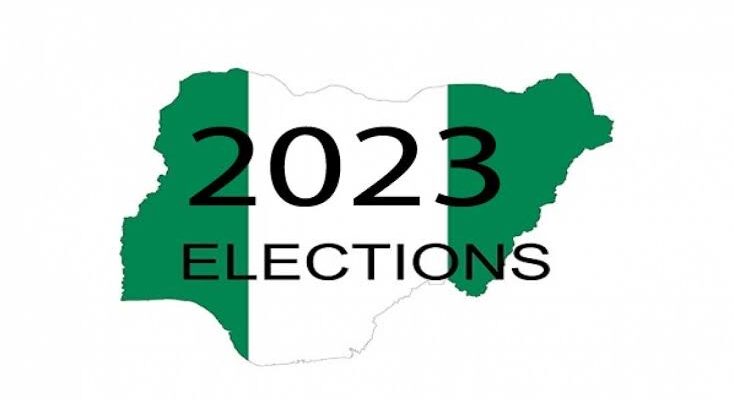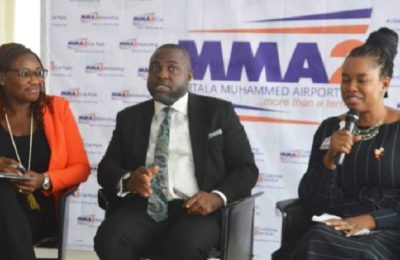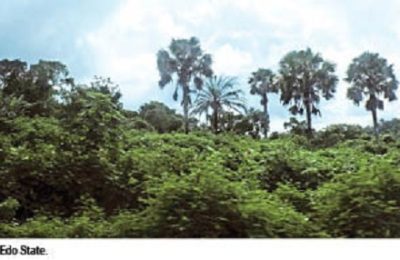

Clearly dissatisfied with the overall process and outcome of the 2023 general election in Nigeria, stakeholders have described worried by the build-up to the 2023 general elections in Nigeria, stakeholders have described result collation as the weakest link in the nation’s electoral process.
This was part of the various interventions at the most recent edition of the Toyin Falola Interview Series held on Sunday, April 16, 2023, across many online platforms and viewed by over 1.4 million participantsspread across Nigeria, Africa and the larger globe. The Toyin Falola Interview Series, chaired by one of Africa’s brightest historian, Professor Toyin Falola, based in the United States of America, has been at the forefront of amplifying African voices. The interview series has availed its teeming audience of the presence of very key players in the African continuum.
Panelists during this edition were drawn from various sections of the Nigerian polity. They included: Jibrin Ibrahim, Senior Fellow with the Centre for Development, outstanding scholar-activist, and professor of political science; Cynthia Mbamalu, co-founder of Yiaga Africa, and leader of #WatchingTheVote project; and Ayisha Osori, Vice President of the Open Society. Chaired by Professor Falola, the event was moderated by Dr. Chido Onumah, a journalist, rights activist, and author, currently the coordinator of the African Centre for Media & Information Literacy (AFRICMIL), Abuja, Nigeria.

In his evaluation, Onumah asked the panel for its general assessment of the 2023 elections, especially in the deployment of technology. In her response, Mbamalu stated that while the Independent National Electoral Commission did promise a transparent use of technology, it failed in its delivery. “The new electoral act makes it mandatory that only those who had been accredited by the BVAS would be allowed to vote. The law is so emphatic that where the BVAS is not deployed, elections in that polling unit would be suspended and conducted the following day. Some of the instances where we had inconclusive elections, some polling units did not have the BVAS; so they could not vote. That added to the number of polling units. At the end of voting at every polling unit, the BVAS is used to take a picture of the result form at the polling unit level. The result is then uploaded at the INEC Result Viewing portal (IREV). This is done before proceeding to the next level of collation.
“We know that the result collation is the weakest link in our elections. At the polling unit, you can observe what happens. But after this, you do not know what happens. When the amendment commenced to the electoral process, one major issue that citizens rallied around was the electronic transmission of results. Many people pushed for electoral technology. INEC was given the power to electronically transmit results. It was however clear that the electronic does not substitute the manual; however it complements the manual. A section of the article says that when there is discrepancy between the manual result and the uploaded the result, the uploaded result will take premium consideration.
“Our data did show that BVAS was deployed in 95 per cent of our sampled polling units across the local government areas. In 88 per cent of the polling units, it malfunctioned but fixed. In some places, elections did not hold because the BVAS did not hold. For accreditation, BVAS worked. On the result collation, our data did show that in 88 per cent of our polling units, the BVAS was used to take pictures of the result forms at the polling unit level. In 68 per cent of the polling unit level, the presiding officers attempted to upload the results on the result viewing portal. (This was for the presidential election). As at 10pm on the presidential Election Day there were no results on the viewing portal. We observed that on the same day, the results for the senate and House of Representatives elections were uploaded. These elections held the same day with the presidential. Why did we experience delay in the upload of the presidential election results on the viewing portal? INEC is yet to respond to this,” she said.

For Professor Ibrahim, the process of an electoral process is more important than the outcome. According to him, “What was important about this election was that the electoral commission designed an integrity test and sold it successfully to Nigerians. It was a very convincing sell and the integrity test had two components. One of them was the BVAS; what that does is that it tells you exactly how many voters turned up to vote, which means you cannot, as had been the case, simply write numbers. This is because the numbers that turn up are known. The second component of the integrity test is the IREV which is a public portal where results from polling units are sent there so that everybody can see the results as they come out. The purpose of IREV is known from the sociology of previous elections that elections are seldom rigged at the polling units. It is from the ward to the local government collation centers that results are rigged and numbers changed. The idea of giving polling units numbers on the public portal is a brilliant one. That really created confidence in the election. When the elections came, principally BVAS worked. But for the public portal, it didn’t work. That the public portal didn’t work created serious doubts on the veracity of the entire numbers in the elections. But IREV is not the integrity test of the election. The election results on the forms are what you need to determine the veracity of the elections. This is according to the electoral act. But because what people see and didn’t see determines how they make up their minds. All attention has been on IREV. All the observer reports confirm that on the whole that BVAS worked. And if everybody is surprised at the very low numbers of voters, this was because BVAS worked and people couldn’t fabricate numbers in terms of turnouts in the elections. I think the essential of the integrity test is that the public presentation was a woeful failure. It is unfortunate that INEC after the beautiful promo they did about the portal at the end could not deliver on it. It means that forever these elections will be tainted. But elections are about process.

“I followed the election of Kano on February 25. There was violence; people were killed. The results were changed to favor a famous lawmaker that we all know. But when you review the entire process in Kano, the affected polling units are between five and six per cent of the total polling units in the state. In the other 94/95 per cent, the elections were smooth. The more people you talk to in Kano about the elections, the more people will tell you that this election had a very high level of integrity. We now live in a context in which you look for the scandal and the scandal colors the outcome. What is important about elections is not really the outcome but the process. You cannot say that because there was violence in a few places in Kano, therefore it had no integrity. In a lot of states, that was the reality. It was the fact that the process itself was sound in most places. That was why we had surprising outcomes in which many governors for example in the past were able to determine outcomes but this time they found out that they couldn’t determine the outcomes. Of course there are states with exceptions. We should be able to do an assessment of elections based on what happened in majority of polling units rather than the sensational cases that provide headlines for the media. A lot of people don’t appear to even know how elections are conducted.
“I have heard a lot of people say that the chairman of INEC simply rigged the elections. The chairman of INEC cannot rig elections because he doesn’t conduct elections. Who conducts elections in this country? There are 774 local government electoral officers. They are the ones who control and run the elections. An INEC chairman sitting in Abuja doesn’t even have access to them during the elections. Looking back at the entire history of our elections in this country, there is only one case in which an INEC chairman sat down and wrote results and that was in 2007 when Maurice Iwu was the chairman. When it happened everybody knew when it happened. When people reach conclusions about INEC rigging elections, that means that they are not looking at the process. Some electoral offices at the very polling units or ward or local governments are very corrupt. They take money and do all kinds of illegal things.”
They, however, called for the re-evaluation of the nation’s electoral process, more punitive measures against electoral offenders, more empowerment of the voting population, improved security, and better youth participation.
In her remarks, Ayisha argued that “I have a lot of doubts about the 2023 elections. That is because I cannot dissociate where we are as a country in terms of the quality of governance. We have had a long history of rigging elections in Nigeria. I don’t suddenly believe that because we introduced BVAS and IReV, those people who typically are used to rigging elections will suddenly just go to sleep. ‘The principal forms of rigging and fraud were perfected in the elections in 1964, 1965, 1979. 1983, 1999 and 2003. The result is that the outcome of elections has been the subversion of the democratic process rather than its consolidation’. This quote is from Ahmadu Koffi in Nigeria’s General Elections 1951-2003: My Role and Reminiscences. I would add 2007 and maybe some would add 2011, 2015, 2019 and here we are in 2023. There was a lot of hope that with the introduction of technology, we would see something better. To focus on the results alone means that we are saying ‘here is the answer let us work back to it.’ There is something called competitive authoritarianism. You can have competitive elections but they are not becoming more democratic. For me, the process was deeply flawed.”








